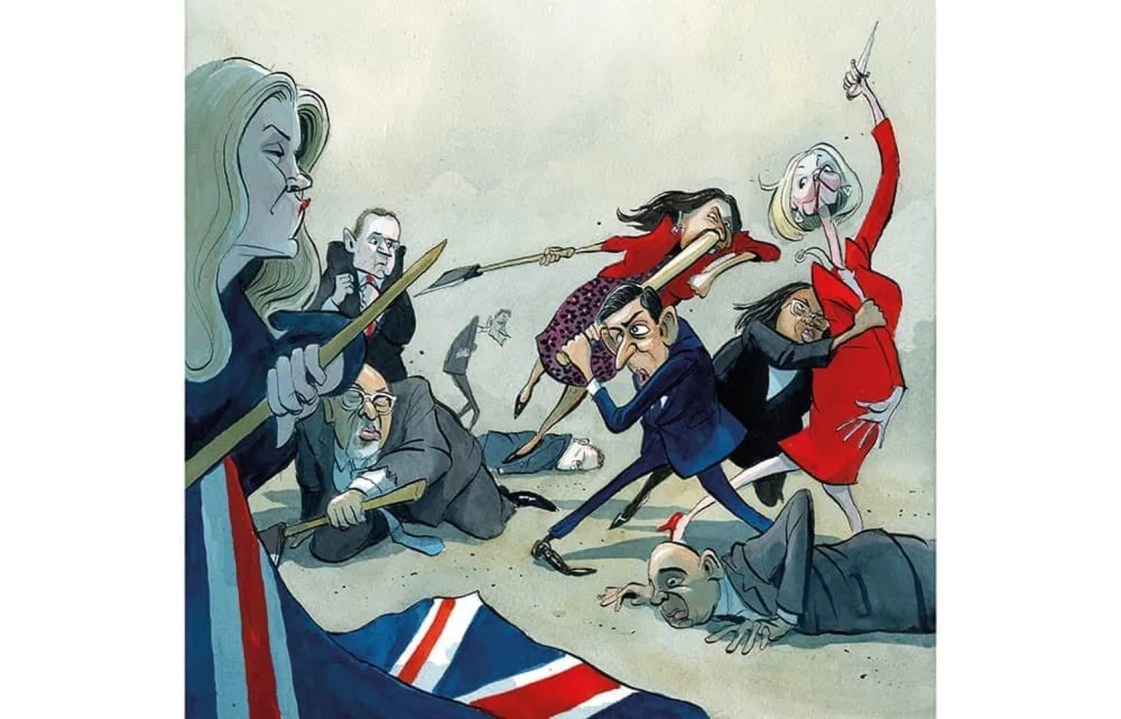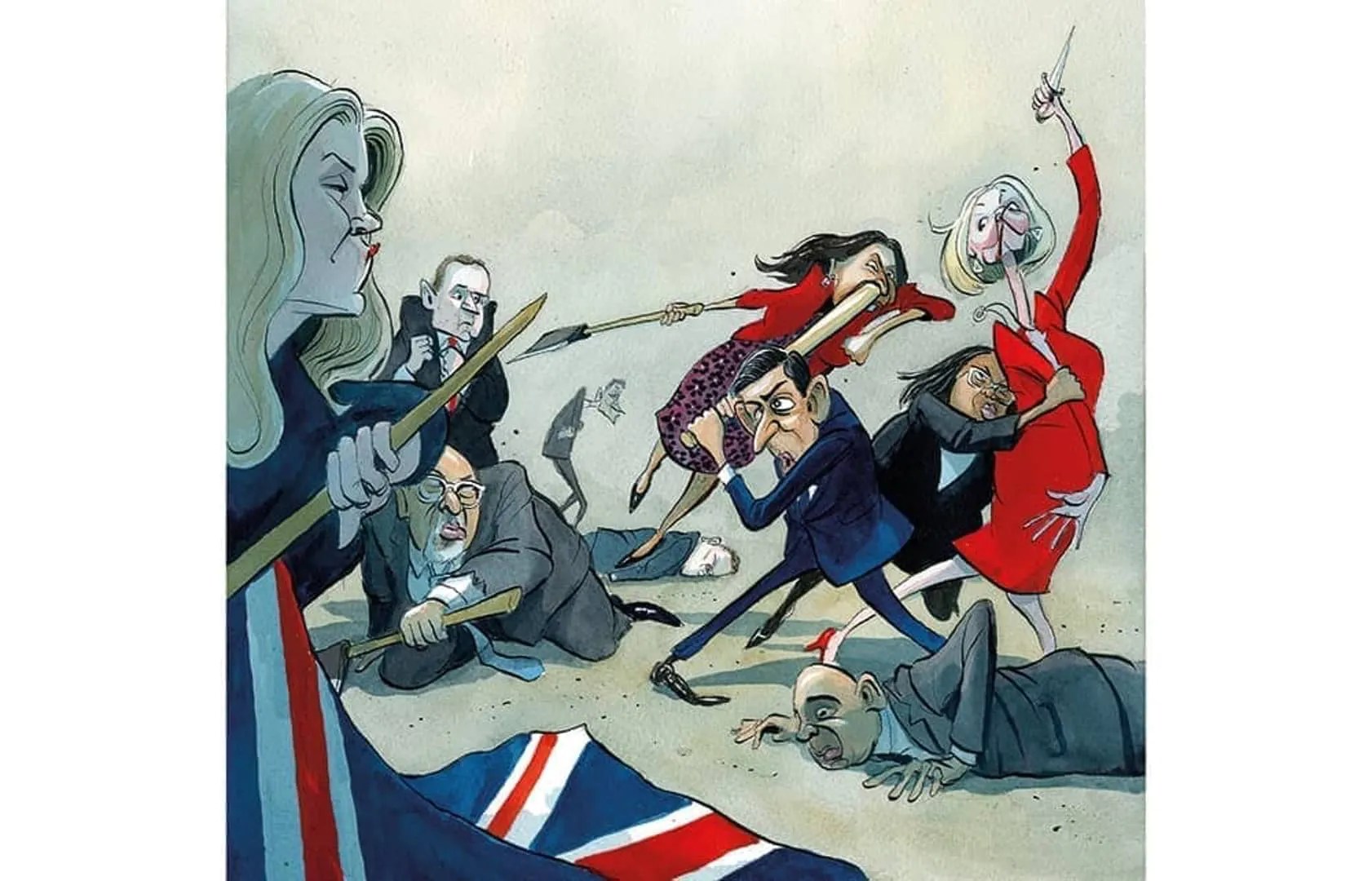I think that I may be able to claim credit for being the first writer to question the once universal assumption that Rishi Sunak would be the next Prime Minister. Back in March, after the then-Chancellor’s disastrous Spring budget statement, in a piece for this site headlined ‘How Sunak Sunk Himself’ I pointed out the dents in the smooth billionaire’s shiny armour that have now become gaping rusty holes, and turned ‘Dishy Rishi’ into ‘Fishy Rishi’.
Too rich during a cost of living firestorm, too out of touch with ordinary people struggling to make ends meet, and too prone to making basic political errors, Sunak’s flaws have been brutally exposed by his nakedly ambitious grab for the Tory leadership. That effort now looks certain to hand the keys of No. 10 to his rival Liz Truss. A campaign which began with the ex-Chancellor openly stabbing his next-door-neighbour in Downing Street in the back, is ending by proving the truth of the old adage that he who wields the dagger never gets to wear the crown.
It is another ancient adage of politics that divided parties do not win elections
Now, once again gazing into a Mystic Meg crystal ball, I venture to make another prediction: the Tory party, fatally sundered by Sunak’s treachery, will lose the next election in 2024. The cohort of 320 Conservatives in the parliamentary party are split into the two factions backing Sunak or Truss, and it is another ancient adage of politics that divided parties do not win elections.
The ridiculously prolonged leadership race, which seems to have lasted longer than the 100 Years’ War, has hardly shown the party at its best to the public. Those people watching in horror as the rival blue camps tear each other to shreds are the same voters who will either give the tired Tories a further spell in government in two years’ time or – much more likely – eject them from office with a shudder of boredom, contempt and disgust. For the third political adage that this long hot summer has proved true is that oppositions don’t win elections – governments lose them.
However bereft of ideas Labour are, and however lacklustre their splintery plank of a leader is, just by keeping quiet while the Tories eviscerate themselves has been enough to give them a whopping 15 per cent lead in one recent opinion poll. With the tsunami of economic woes that is heading our way this autumn, how long will it be before rumblings of popular discontent start to lap around the new prime minister? How long before letters from panicky MPs demanding yet another change of leadership begin to arrive on Sir Graham Brady’s doormat?
With a sense of weary inevitability we can already forecast the political weather. The powerful anti-Truss faction among Tory MPs, including the grandees known as the ‘big beasts’, bitterly disappointed that their various favourites have fallen by the wayside, will tour the TV studios, or write op-eds for the Times calling for a change of course as the government’s popularity continues to plummet. The ranks of the malcontents will be swelled by former ministers with no place in the new regime, and establishment toadies enraged that the mass of Tory party members have failed to follow their orders and elected the ‘wrong’ candidate as PM.
As inflation rockets, energy bills continue to rise, and strikes break out across the nation, it is not merely the ghosts of John Major’s lame duck administration of the 1990s that will haunt the Tories: the horrid spectre of the 1970s will return in full force. And this time round there will be no blonde female politician waiting in the wings ready to take over: she will already be in power. But not, I suggest, for long.







Comments